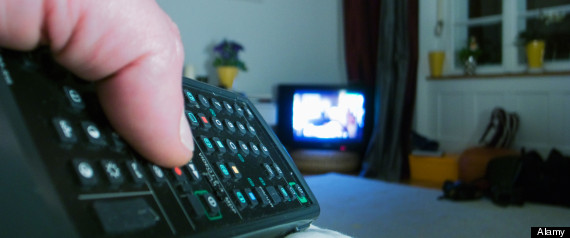After a tough day at work, most of us just want to kick back, turn on the TV and relax. The harder you’ve worked, the more that you want to turn off your brain for a bit to de-stress. It makes total sense, right?
It turns out that watching TV after a stressful day at work doesn’t relax or rejuvenate you. It’s worse, according to a recent study. Watching TV after a stressful day leads to feelings of guilt and failure. It doesn’t give you the downtime you need to prepare for the next day, nor does it keep you in a neutral state — it actually depletes you.
The reason this happens is a bit of a paradox but the psychology will make sense to productive people — and it will arm you with the knowledge you need to do get proper rest and relaxation after work.
The Productive Couch Potato Paradox
In a recent study by researchers at Johannes Gutenberg University Mainz in Germany and VU University Amsterdam in the Netherlands, they surveyed 471 study participants “about their previous day, how they felt after work or school, and what media they turned to at the end of the day.”
They found that those people “who felt particularly wiped out after work or school were more inclined to feel that their media use was wasted time and procrastination.” People felt guilty for having given in to their desire to be a lazy couch potato after a hard day’s work instead of doing something productive. The upshot is that those people felt depressed and frustrated after what should have been their personal recovery time.
The paradox at the heart of this study is that those people in most need of recovery are least likely to get it because they are more prone to think of their relaxation period as a failure of self-control.
Sound familiar? This hits productive people the worst because they’re often the people least likely to take time off to recharge — and when they do, they feel guilty about it. They’re too hard on themselves, and they tend to frame time spent away from work as a personal failure. That results in a near-constant stressed-out state and leads to early burn out.
The Mental Trick to Relaxing and Getting Credit for It
The study suggests a simple but profound shift in thinking about watching TV after work that applies to all forms of recharging your productivity.
Don’t think of watching TV after work as a failure of self-control, think of it as a reward for a hard day’s work.
This might sound obvious in theory, but productive people can have a very tough time applying this in practice. Ironically, productive people often overlook their own productivity. The more productive you are, the more likely you are to get down on yourself and think at the end of the day, “I wasn’t very productive today.” As a result, you’re less likely to give yourself a reward because you won’t think that it’s deserved.
That’s why reflecting on your day and writing down your accomplishments is absolutely vital. That recognition initiates the reward and recovery that’s critical to long-term, sustainable productivity and happiness. You’ll be able to watch TV without the feelings of guilt and frustration that bog us down with a grey cloud that follows you to the next day.
Effectively managing your own psychology makes the difference between feeling exhausted after supposedly decompressing with TV following a long day at work and feeling rejuvenated and ready to tackle the next day.

